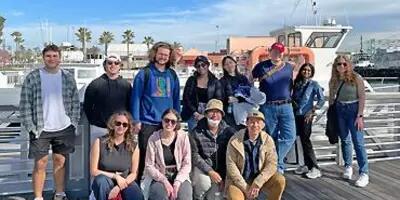CSUS affiliates Tim Sayle & Ron Pruessen teach intensive graduate course at University of Rome
Professors Tim Sayle and Ron Pruessen (each affiliated with both the Graham Centre for Contemporary History and the Centre for the Study of the United States) recently taught a two-week intensive graduate course at the University of Rome: History and Present-Day Policy Analysis – U.S. Foreign Policy as a Test Case. The course involved work with five Ph.D. students in Italy’s top International Relations graduate program. For both Rome and Toronto partners, this was a new effort aimed at further internationalization of curriculum and research as well as expanding global networking opportunities for the next generation of academic leaders. The U of T’s Graham Centre and Department of History also saw the course as an opportunity to test drive themes and approaches that will figure prominently in the Master’s Degree in Contemporary International History program currently being developed – a professional degree initiative that will simultaneously develop broader career options for History graduate students while enriching analytical and problem-solving capacities in government, international organizations, NGOs, the media, and the private sector.
Sayle and Pruessen focussed on current headline issues in U.S. foreign policy, including Donald Trump’s attitudes toward NATO and the European Union and continuing debates about ISIS and the Syrian civil war. In each case, the potential relevance of historical experiences and analogues was considered. Why did Washington policy makers of the 1940s and 1950s, for example, see military cooperation and economic integration as high priorities (not least because of their readings of pre-World War II history) – and how might reminders of these sensitivities strengthen the approach of policy makers to Brexit, European defense spending, or NATO expansion? How did a lack of attention to earlier intervention failures (e.g., Vietnam, Lebanon) contribute to disastrous experiences in Iraq and Afghanistan – and how should the record of the Bush and Obama years impact decision-making about an ongoing U.S. role in the Greater Middle East? It was never assumed that historical comparables would offer precise prescriptions for current challenges (since challenges evolve and contingencies inevitably arise), but awareness born of contemplated experience can only be helpful in a 21st century world where leaders have been making so many costly mistakes. George Santayana’s famous observation comes to mind: “Those who cannot remember the past are condemned to repeat it” – or, as Mark Twain quipped, “History may not repeat itself, but it does rhyme.”

